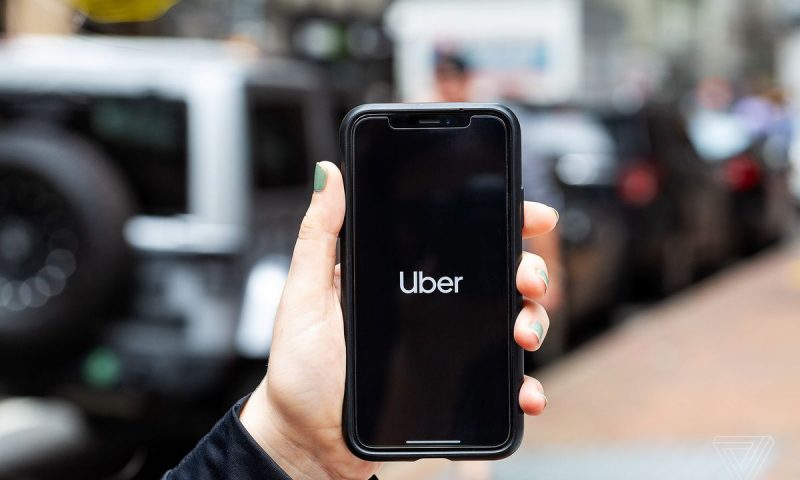Uber Technologies Inc. on Wednesday reported that it swung to a profit in the second quarter, and that gross bookings and revenue doubled year over year, but investors still drove its stock down in extended trading.
Uber UBER shares fell as much as 11% after hours, after dropping more than 2% in the regular session to close at $41.81. They closed the extended session down about 5%.
Uber’s profit was largely due to its investments. Without them, the company lost more than half a billion dollars in the quarter. The company also said it had 101 million monthly active-platform consumers during the quarter, an 84% increase year over year but well short of analysts’ expectation of 108.9 million.
On the earnings call, Uber Chief Executive Dara Khosrowshahi said the company’s driver-supply issue is heading in the right direction — it added 30% more U.S. drivers from June to July — so Uber is already pulling back on driver incentives. He also said rides demand is “back to nearly normal” in certain markets, but driver supply and ride prices and wait times “remain above our comfort levels” in places like New York City, San Francisco and Los Angeles.
As for the effects of the COVID-19 delta variant, Khosrowshahi said “where we have seen shutdowns, we see significant changes.” He cited Australia as an example, saying Uber’s mobility business takes a hit when a city shuts down but the delivery business sees an improvement. That’s where the “hedge” of having both a rides business and Uber Eats comes in, he said.
Uber’s overall gross bookings rose to $21.9 billion, above analysts’ expectations of $21.25 billion. Mobility gross bookings rose to $8.6 billion, beating expectations of $8.3 billion. Delivery continued to outperform rides, with gross bookings climbing to $12.9 billion, above the $12.6 billion analysts expected. Revenue rose to $3.93 billion from $1.91 billion in the year-ago quarter.
Uber reported second-quarter net income of $1.1 billion, or 58 cents a share, largely due to unrealized gains in its investments in Didi Global Inc. DIDI and self-driving car company Aurora. That compared with a loss of $1.8 billion, or $1.02 a share, in the year-ago period. Adjusted for restructuring, stock-based compensation and other costs, the company’s Ebitda loss was $509 million, an improvement from a loss of $837 million year over year but steeper than analyst expectations of $321.7 million.
Analysts surveyed by FactSet had forecast a loss of 52 cents a share on revenue of $3.76 billion.
Chief Financial Officer Nelson Chai said he expects total gross bookings of $22 billion to $24 billion in the third quarter. Analysts on average had expected $22.99 billion. He also said Uber continues to expect to achieve Ebitda profitability in the fourth quarter.
Another driver-related question Uber’s executives were asked was related to regulatory issues. Uber and other gig companies on Wednesday launched an effort to put a ballot measure before Massachusetts voters next year that aims to do what Proposition 22 did in California: carve out an exemption for gig work that would allow them to keep classifying drivers and couriers as independent contractors instead of employees.
“We think the right answer is our IC-plus model, which is independent contractor with benefits,” Khosrowshahi said. “Our drivers love it. Prop. 22 has proven to be incredibly popular with California drivers.”
The Uber CEO’s comments come after a recent strike by Uber and Lyft Inc. LYFT drivers, who called for the passage of the PRO Act, legislation that would allow them to organize. And opponents of Proposition 22 — which offers drivers some new benefits that fall short of full employee protections — say its promises have been broken in California.
“[Prop. 22 is] actually taking rights from workers, not granting them rights,” said Veena Dubal, a labor law professor at UC Hastings, during a news conference this week in which an alliance of workers, community organizers and labor and civil-rights groups spoke out against the proposed ballot proposition in Massachusetts.
Shares of Uber are down 18% so far this year and up more than 25% in the past year, while the S&P 500 Index SPX has risen more than 17% year to date and is nearly 33% higher over the past 52 weeks.
The company reported earnings a day after Lyft’s results also showed a continued pandemic recovery but also continued uncertainty.

